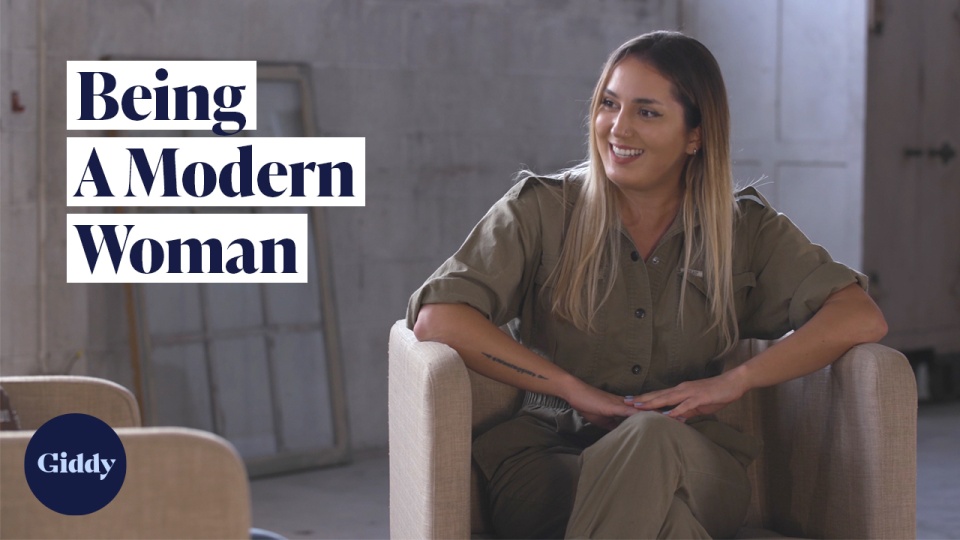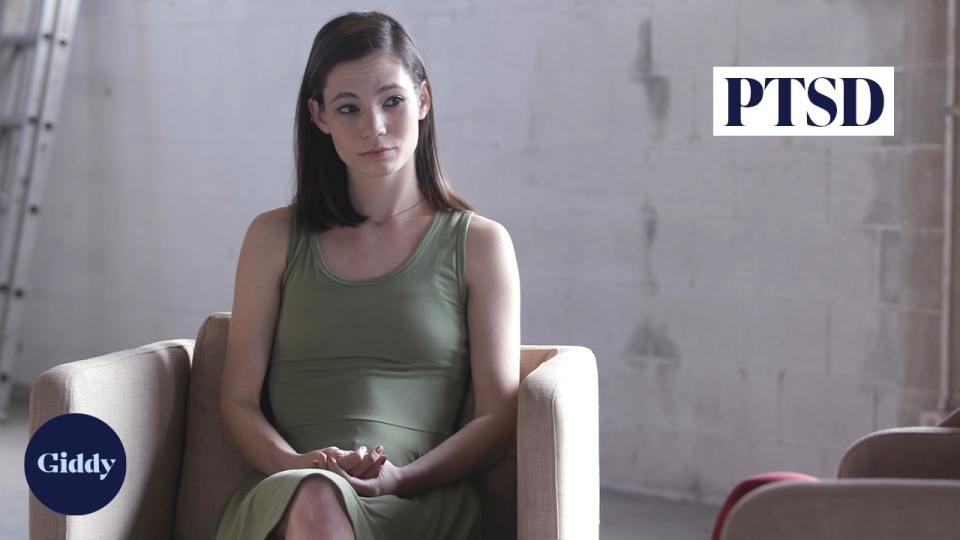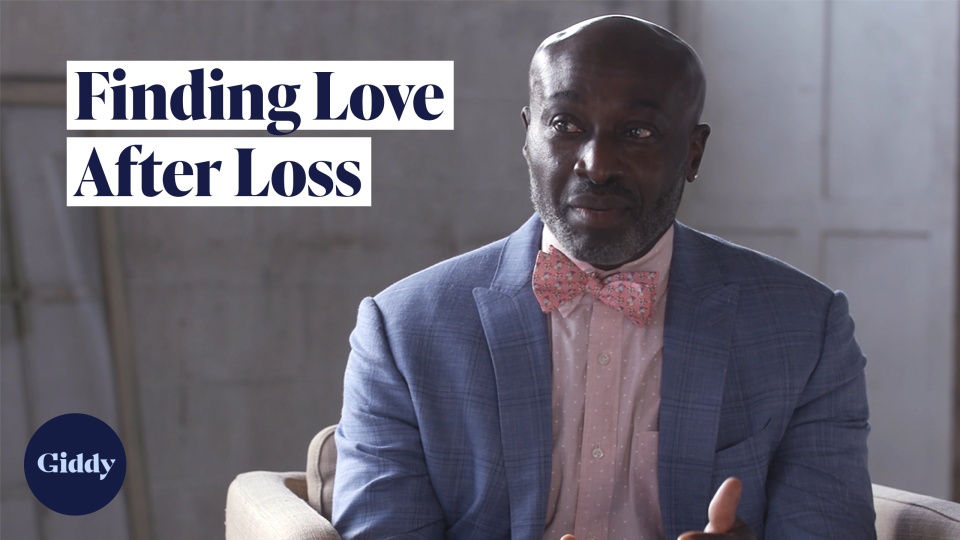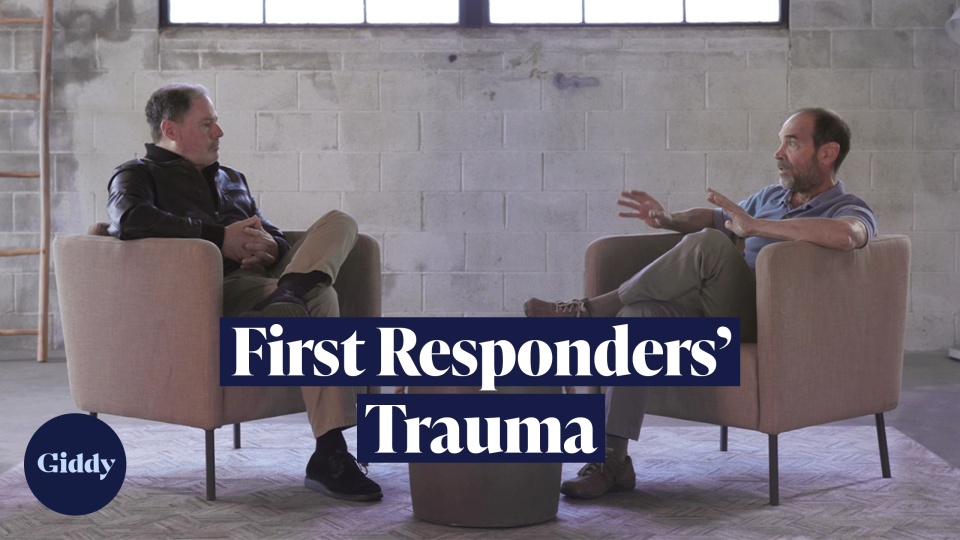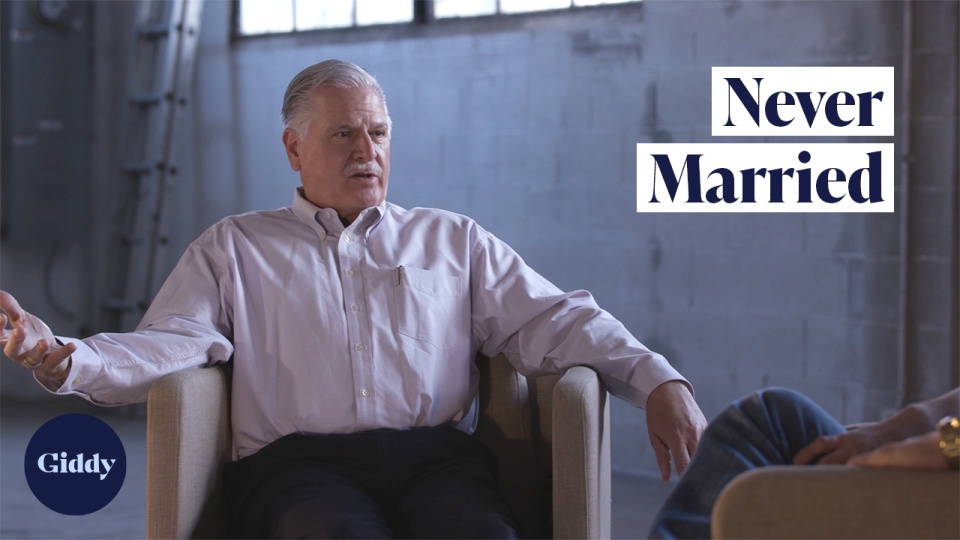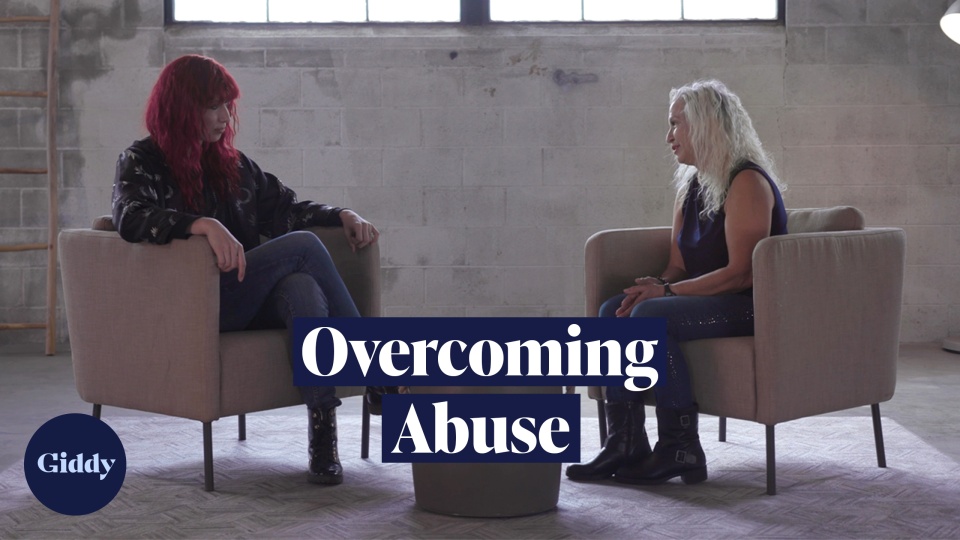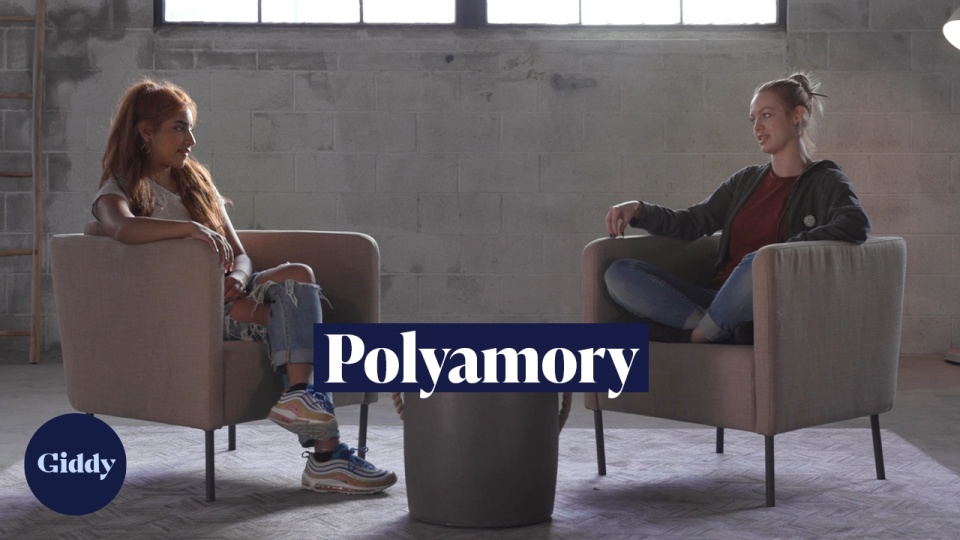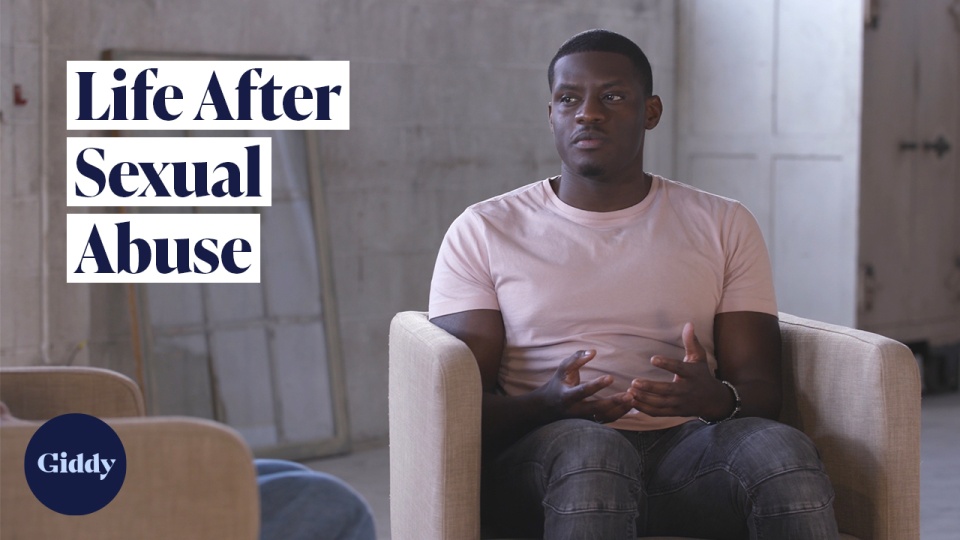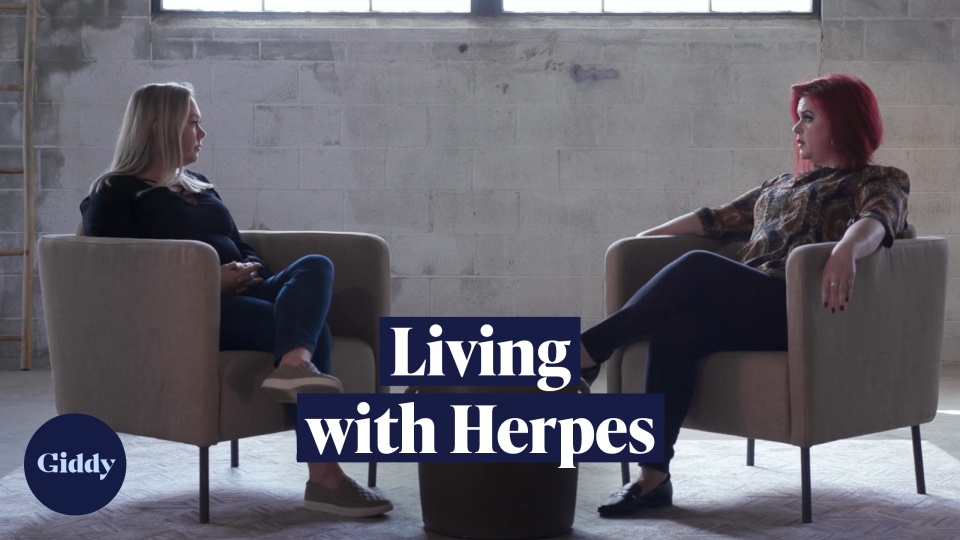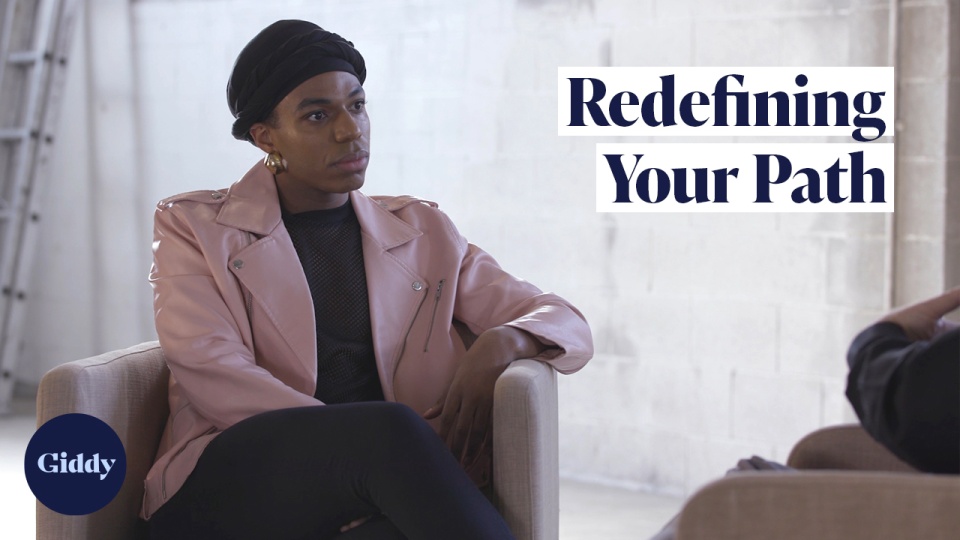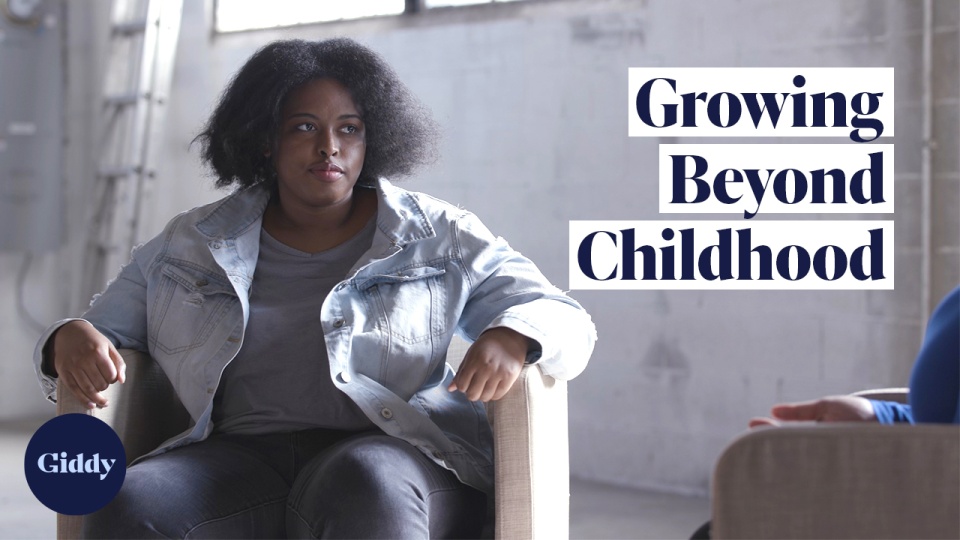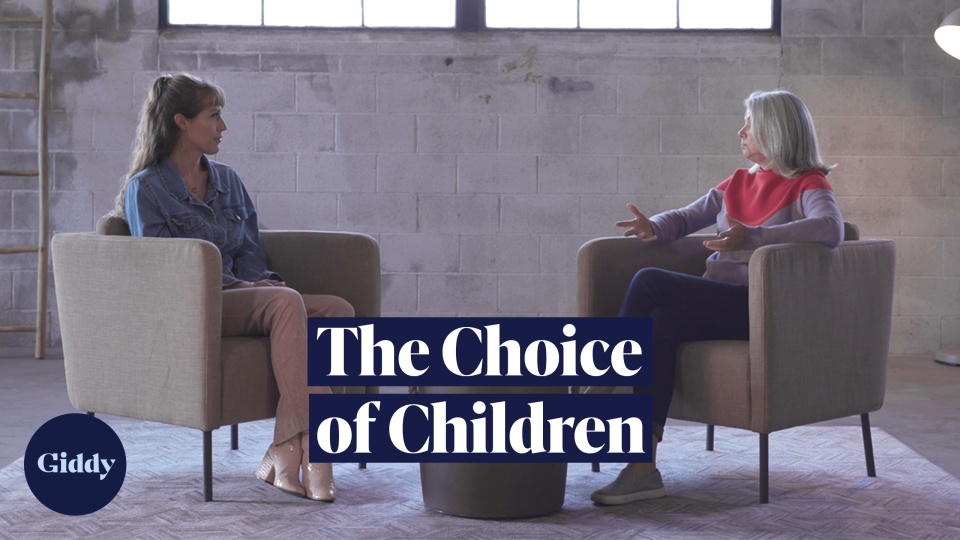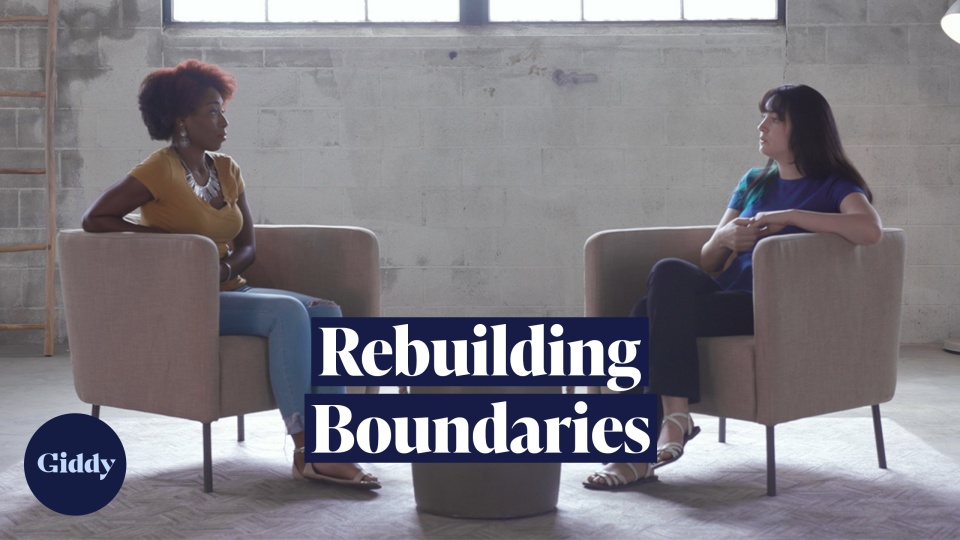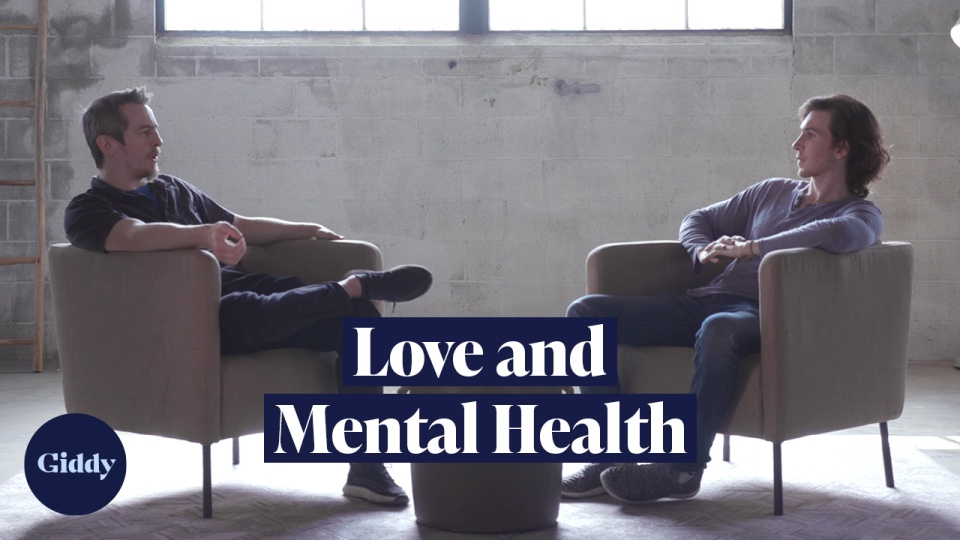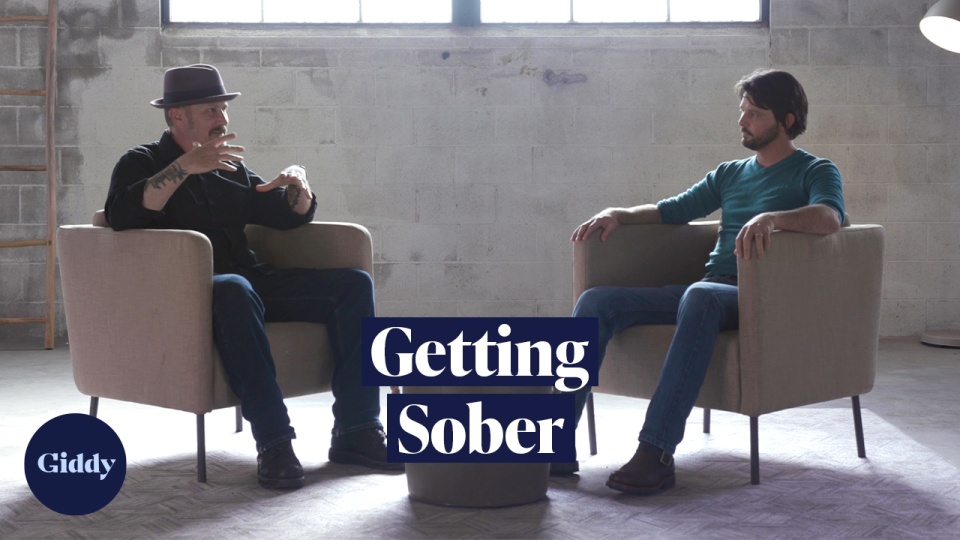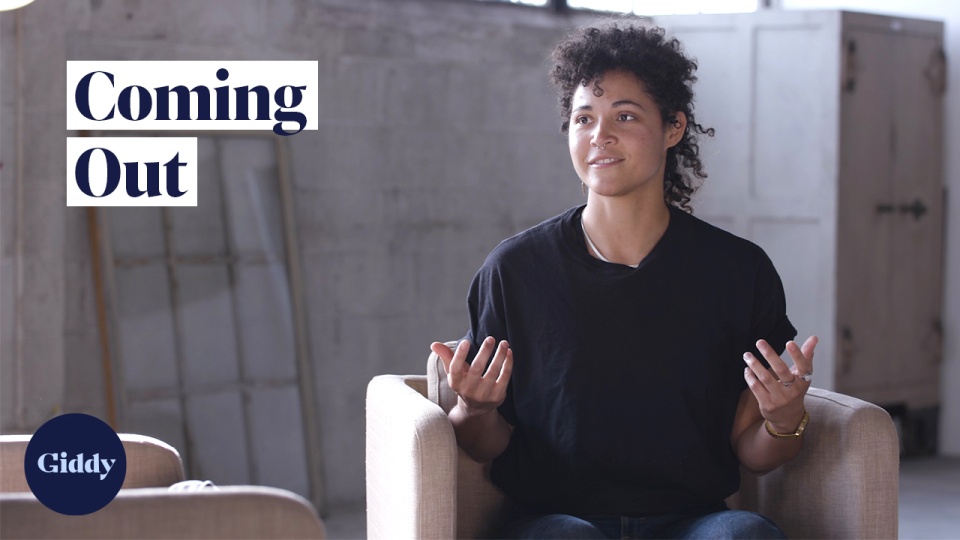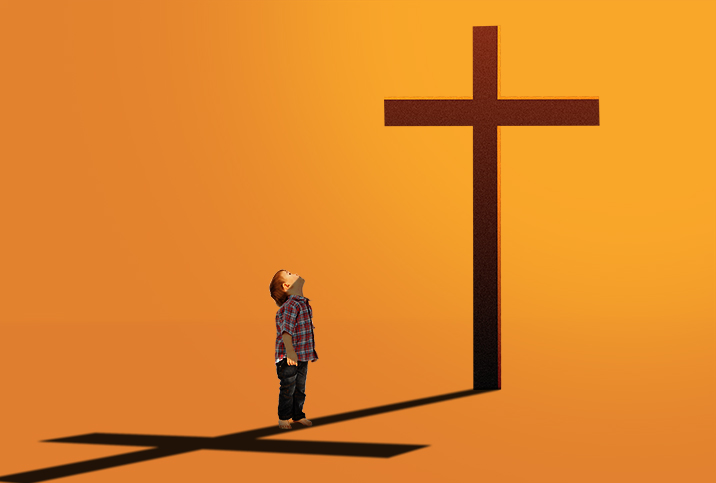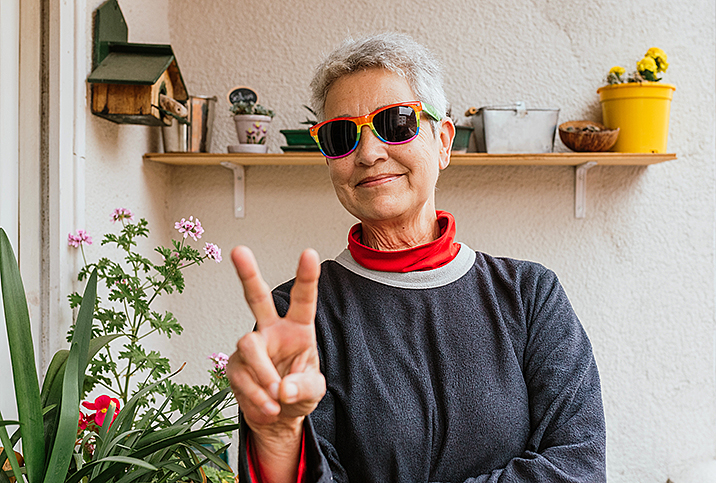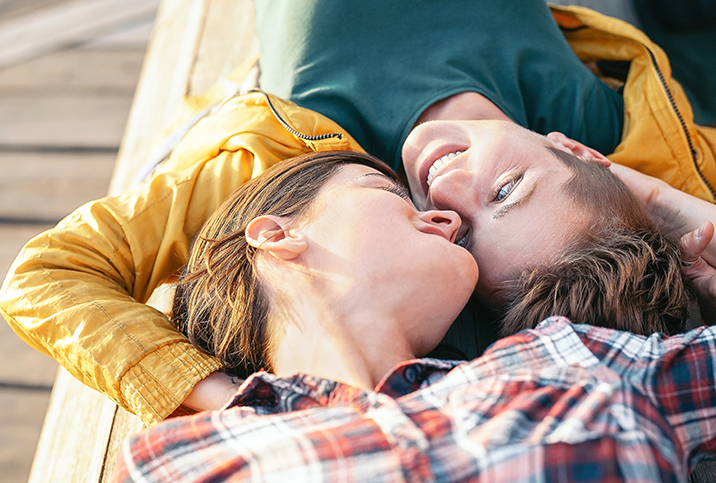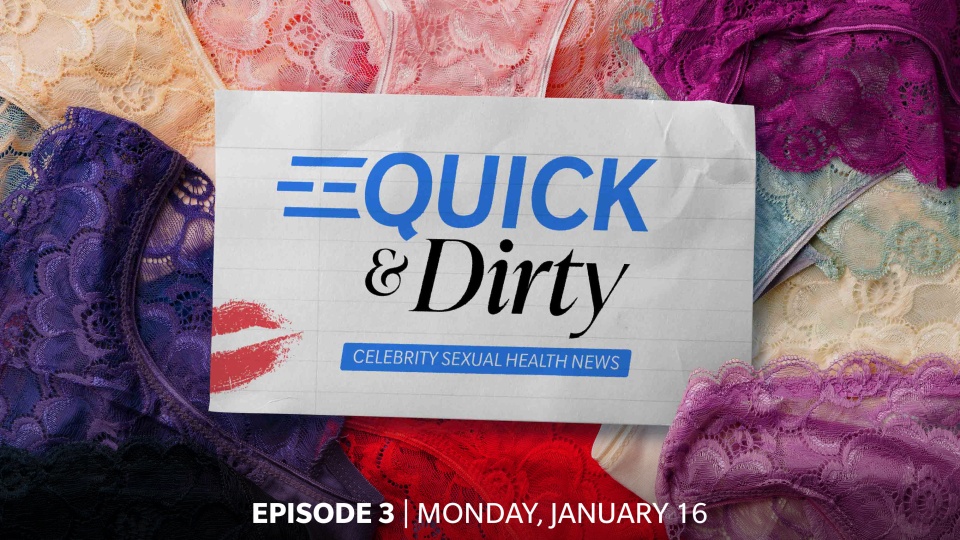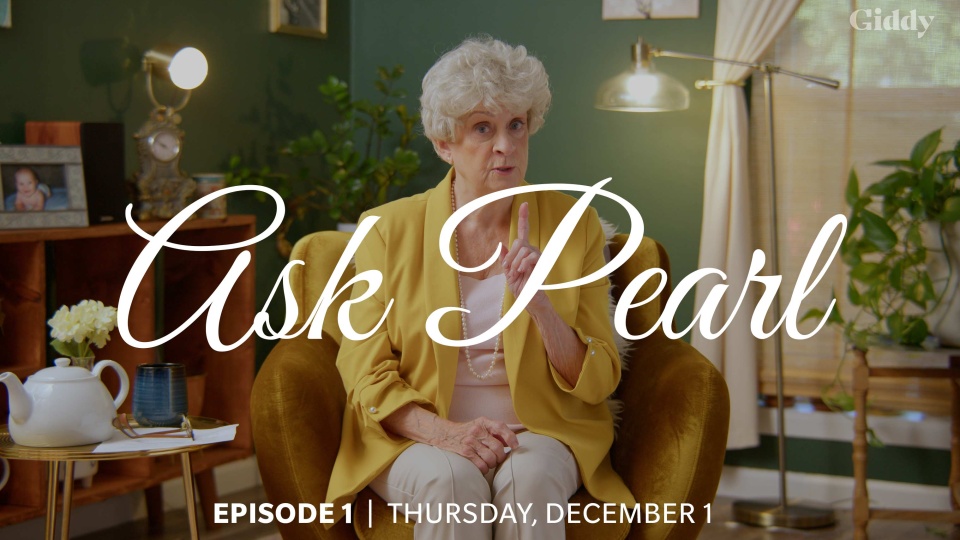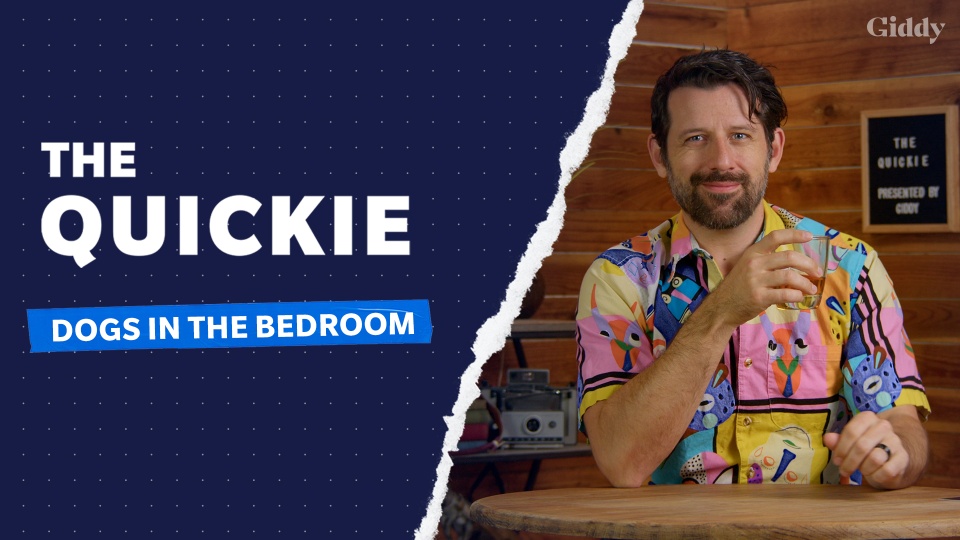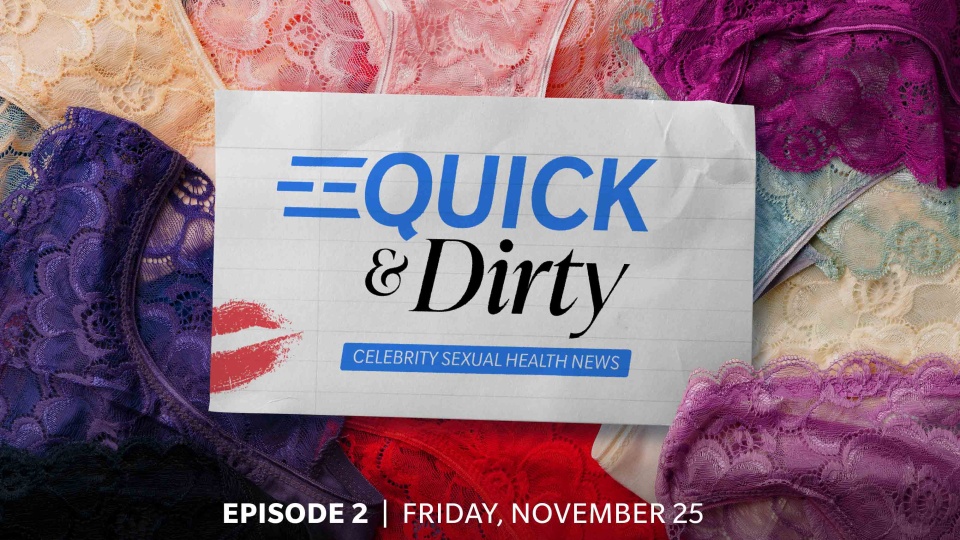Up Next
'My Life Became So Much Better': Redefining Your Path
Two strangers, Josh and Rick, discuss overcoming their strict, religious upbringings and learning to be comfortable with their sexualities.
More about this episode
A Conversation with Josh and Rick
In this episode, Josh and Rick sat down to discuss overcoming strict, religious childhood experiences as non-heterosexual men. Josh's father was shot and killed before he was born, so he was raised by his religious mother and grandmother. When Josh came out in middle school, they were not supportive due to their beliefs and Josh always felt that his family brushed over the fact that he identified as queer.
Similar to Josh, Rick also grew up in a religious household. When he was 16, his parents found a letter that another boy had written to him, detailing their sexual encounter. When he returned home from school that day, his parents tried to "cast out the demon."
These terrifying tactics caused Rick to pursue a path that would please his parents, but disregard his own happiness. Rick attended bible college and was engaged to a woman, but eventually realized that he could never be intimate with her or any other woman. So, he decided to drop the facade and started living a life where he could be his true self.
Rick is now happily married to his husband of 30 years, while Josh still struggles with relationships due to his past trauma. Rick hopes his story will inspire Josh to love himself, so he may eventually open his heart to a partner who will give him the love he deserves.
Transcript
I grew up in Louisiana, a small town called Marksville. My father was shot and killed while my mother was pregnant in New Orleans, so I never got to know my father. So my mother—
I'm so sorry.
My mother and my grandmother raised me. And my grandmother married, in her lifetime, two pastors, married, divorced. So my family was really religious. My mom was a preacher's kid. And the religion was Full Baptists—Full Gospel Baptist Pentecostals, like, all mixed together. So, I came out as queer in middle school to my mom. And my mom was kind of like, "What? No, no, no, no, no, no. The sky is blue." I was like, "but I'm—but I'm gay;" "the sky is blue." And started the years of me just being silent. There were people around me, in my family, out of my family, it's a small town in the South, who just kind of spoke around me, spoke over me.
The passive microaggressions, they don't hit you till you get away and you're by yourself. I think one of my biggest regrets is I wish I had spoke up, because I was letting everyone speak about people like me. Now, going to therapy and addressing my PTSD, my anxiety, my ADHD, when we go through the reasons, they're like, "well, where are these voices coming from?" And then we steal them back. So those instances to now, discovering that I was nonbinary. So I'm Black, queer, non-binary. It's a lot.
Yes it is.
It's like amazing thing to be, but there wasn't anyone like me growing up to look to.
And you're so far removed from what everybody else around you is doing and believing and carrying on their life with, but they want you to include that. And you know you can't. You know that's not you, it's not authentic.
And I felt like every time, like, I was trying to have conversations on things I would think about or had opinions about growing up, people would be like, "[laughing] you're crazy, what are you talking about? That's not you!"
My story is really strange. My dad was a Pentecostal Church of God minister, mom a preacher's wife. There were five kids in the family. There were three girls, then me and then my little brother. And I always said, well, it was a crossover gene. There were three girls and they got a boy finally, but yeah, he's still a little girl in him. Then they got a straight boy, finally, when they had my brother. So they got the whole thing.
But, anyway, it was really, really difficult because I knew about 12 years old that I like guys. I mean, it wasn't anything that I made a decision about, it was just when I looked at one that I thought was attractive, I felt it. I didn't think about it, you feel it. It's a feeling, you know, just like if a girl looks at a guy, she has a feeling if he attracts her.
Well, my dad decided right after I was born that he was going to go into ministry. So he didn't have a church and everything, so he was going to evangelize. So he traveled all the time, my mom raised us. When I was a junior in high school, I went to Texas to stay with my sister for the summer. I went out, I met a guy, we hooked up. And so I went back home, and he wrote me a letter. He talked about everything we did, and my mom opened it and read it.
So when I got home from school, none of the others were there, and my mom and my dad were there. And they had a chair set up in the living room, and I thought, OK, something's wrong. And, of course, then they proceeded to tell me that they knew. And they tried all night long, I was all night trying to cast out the demon in me.
Now, when you are told that you can't be valid because there's some entity inside of you controlling everything you do, some evil terrible entity, and you're like 16, 17 years old, you're terrified. You are terrified. And, of course, you know, life from that point forward changed dramatically for me.
When I left home, I had decided, you know what, I can't do this. I can't be this thing, I can't let this demon control who I am. I've got to pray through. And so I went to Bible college, and I was going to be a minister like my dad. Now, can you imagine, that would have been the worst mistake of my life. I mean, it would have been, J.
I almost went to the Hillsong college for worship ministry right after high school.
You want their approval.
Yeah.
You want it so bad. I mean, that's the people that are responsible for you until you're almost an adult or an adult, and you leave.
It was between my grandmother and my mom, and they raised me. My grandmother lost two of her kids. I didn't get to meet my aunt, but I met my uncle. And he was one of the only queer people that was out in my family, but out in quotations—which was like, he would come in and he would come out, like, because people's disapproval of LGBTQIA+ in my family, it's so passive because they want to have it under the guise of no judgment.
I know you can relate to this where it's like, "OK, well, you know what the Bible says, I love you, I love you." And you're like, "what is that do for me?" Because when I go to sleep at night, I'm always flipping through that.
You see it as conditional love, their love becomes conditional. And that's exactly what happened my parents at that point, it's a conditional. If I changed and towed the line and took a different track, the love was unconditional. But if I didn't, then they couldn't love me unconditionally because there was something wrong with me.
And my thing was after they found out I was gay, it certainly changed. And my dad was extremely hard on me. Theirs was not passive, theirs was very aggressive that I was not going to be this person, that I was not going to hell. And so I did that. I went to Bible college, I was studying at Bible college, comparative religion.
And there was a girl there and I got along with her. She was friendly and I thought, you know, well, she's really nice, I like her. I wouldn't even think about sex, but I went ahead. And we ran around together with a bunch of kids and we got close, and so I asked her to marry me. And I took her home—oh, they were all so excited. My mom says, "oh, he'll keep you barefoot and pregnant," and all this. And I'm thinking, "oh God, no."
Loving the person that they want you to be.
Absolutely.
Loving the person that's in front of you.
I was putting up a facade, a wall, that I was hiding behind, and there was a completely different person that was projected. And what it makes you do is learn to be a good liar, basically.
The alternative is unacceptable to you because you feel like—in your head, you're thinking, "no, I can't be gay, I can't be gay, I can't be gay." That's all you can think about. And what broke that facade for me was the girl that I was engaged to, Becky, she wanted to get more intimate with me. And I knew I couldn't. I said to myself, "you know what, you've got a choice. You can be true to yourself and just deal with it, or else, you can live a lie, and you'll be accepted by this community that you really don't even want to be in."
And I feel like I delve very deeply into, when I moved out to California, into hookup culture because of, I know I had these sexual urges and I couldn't get them out when I was in Louisiana. So you know I'd get on and jump on the grindr for a while.
And the funny thing is I would never get to fourth base. It would always be something like some foreplay, some oral type of thing. I'd be like, "OK, you can leave now." And they're like "what?" "Move, I don't want to, thank you so much."
So, I did that for a while. I left home, delved into that, or had like a busy phase. And then I could never get into a relationship because I've had one or two, three men in my life that have come in and have pressed into me. Like, you know exactly—[for you to be] married, that's like pressed into you and was like, saw you, and everything. And I was like, what is that? Because it's like—
It's called a soulmate. Somebody that you connect with and know—
Not me running from it because I don't know what this looks like.
Well, no, exactly. You don't know, you're going to run from anything that makes you the least bit uncomfortable because that's what you did, you had to.
And that's what we were taught.
If parents who have children that are different would just remember that all they need is a loving, safe, environment.
To love them.
That's all they want, that's all they need. That's what every child should expect.
It's interesting because I'm in therapy and I'm seeking healing to be in love with myself so I can—
Love somebody else.
And let somebody else love me.
And let somebody else love you. You can't love—and you know RuPaul, if you can't love somebody else until you love yourself. You just can't do it. But the positive thing for me was that once I broke out of that facade, then my life became so much better. I mean, I met a wonderful man, we've been together 36 years.
Come on, 36 years?
36—our anniversary was yesterday. So it can be done. I mean, it can be done. You can overcome every bit of that stuff.
Oh gosh, I've got to breathe and take that in. I'm like, [breathing in strongly]
I mean, it's true, because it can be. It can be because you are the captain of your own ship.
Oh, yes.
Yes. You're the master of your soul.






